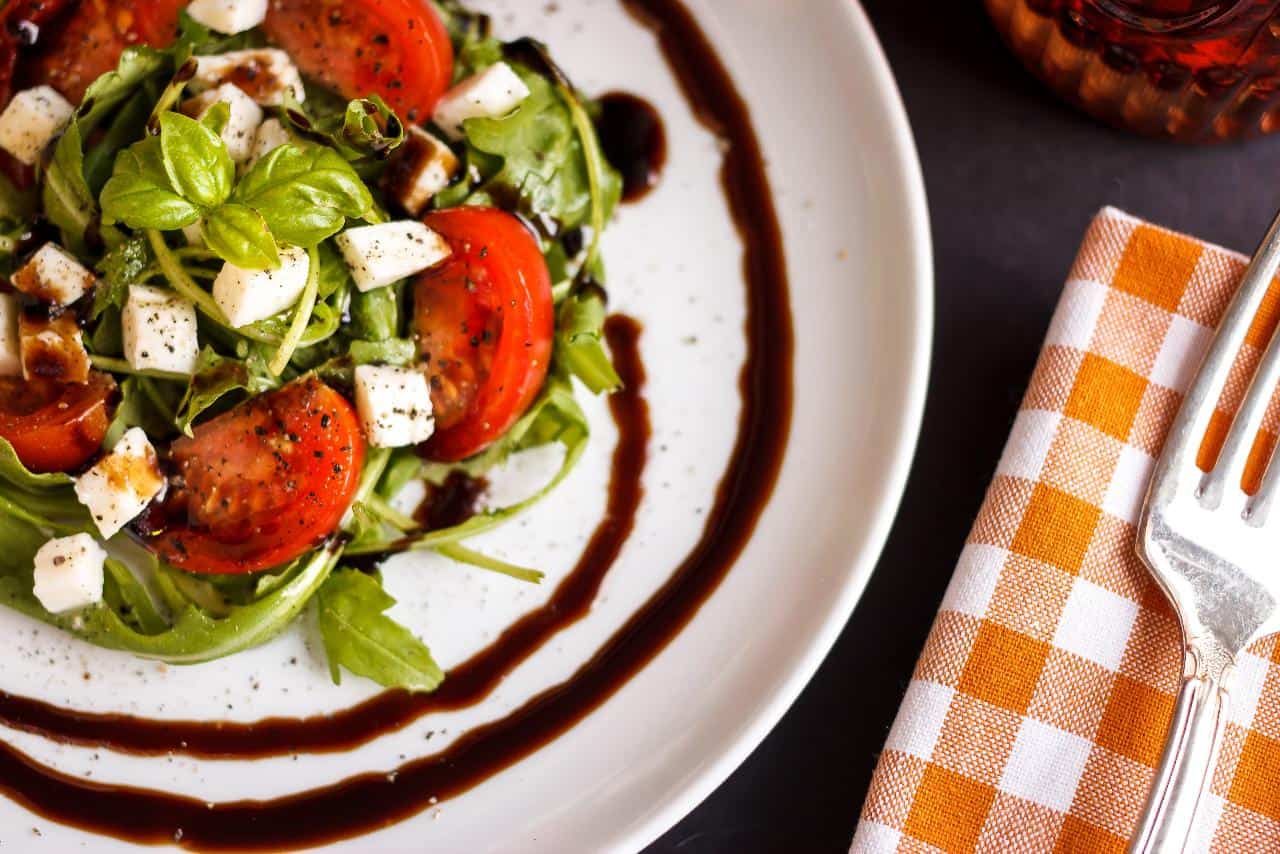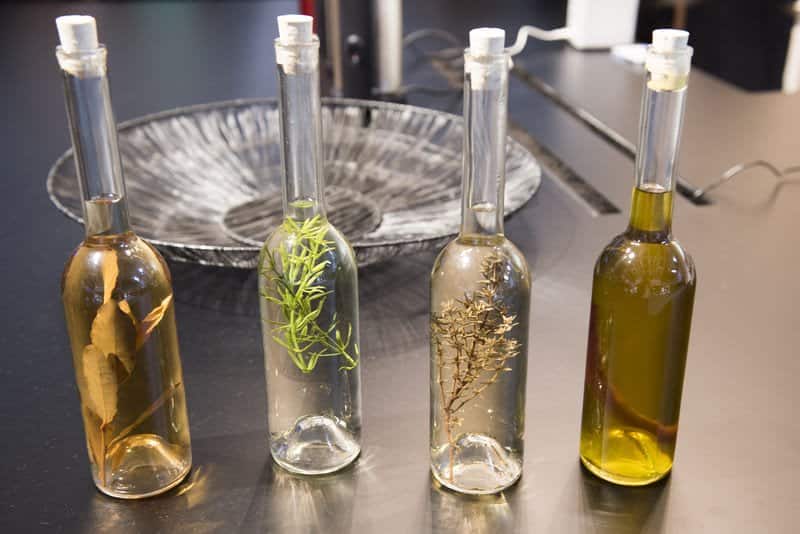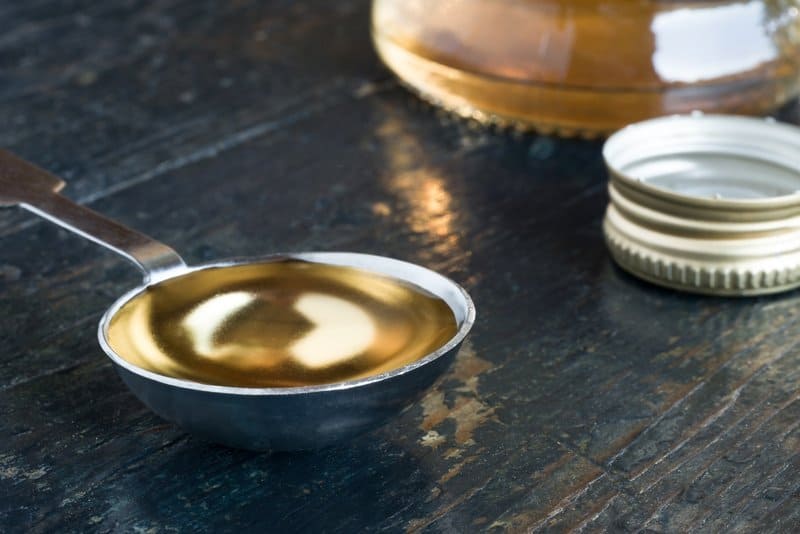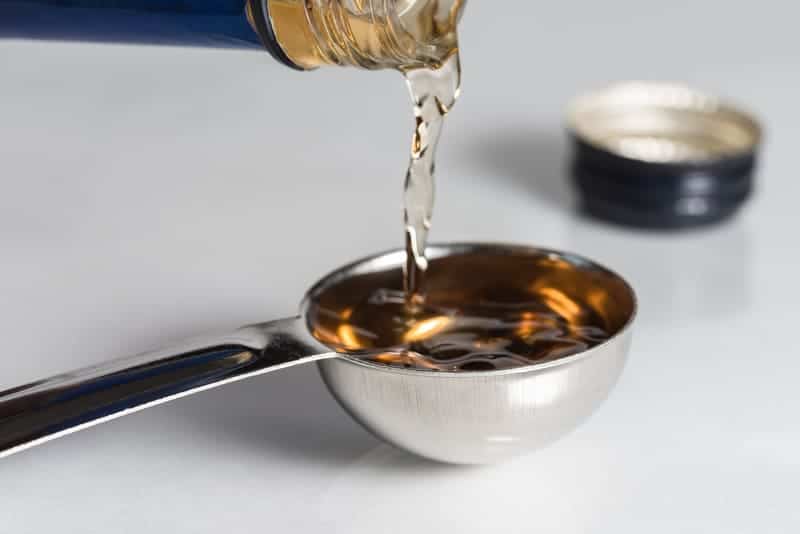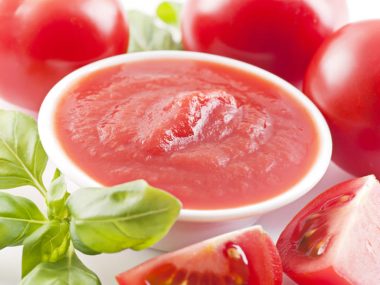Cane vinegar consists of the extracted juice from the fresh cane. This juice is cooked down until it gets a syrup-like texture and then it is left to ferment into vinegar.
The Philippines widely produces and uses cane vinegar, also known as sukang iloko or sukang basis. However, other countries like the US, France, and Brasil produce it as well.
Cane vinegar has a light, mildly sour, flavor and dark yellow to golden brown color. People use it to enhance the flavor of salad dressings, sauces, vinaigrettes, and meat marinades.
If you have run out of cane vinegar but want to improve the flavor of your dishes you can use some other type of vinegar as a substitute for cane vinegar.
Let’s learn more about each substitute below!
Best Cane Vinegar Substitutes
All types of vinegar are more or less acidic and have different flavors, textures, and colors. You can choose the one that will give a beautiful flavor to your dishes and make them taste better.
Here are some of the kinds of vinegar that you can use as a substitute for cane vinegar.
1. Rice Vinegar
Rice vinegar is mild and less acidic than other types of vinegar.
This versatile vinegar is made of fermented rice and plays a key role in different Asian dishes. You can use rice vinegar in marinades, stir-fries, dressings, sauces, fried rice, soups, noodles, and dips as a substitute for cane vinegar.
You will get a slightly sweet and slightly acidic flavor in your dish. Use 1 tablespoon of rice vinegar as a substitute for 1 tablespoon of cane vinegar.
2. Malt Vinegar
Malt vinegar also makes a perfect substitute for cane vinegar. It consists of malted barley and has an acidic, sweet, nutty, caramel flavor.
It works well in different salad dressings, meat marinades, sauces, chutneys, and brines, however, you can also add it to side dishes to enhance their flavor.
You can use malt vinegar instead of cane vinegar in a 1:1 ratio and add more to your taste.
3. Apple Cider Vinegar
Apple cider vinegar is more acidic than cane vinegar but has a nice fruity flavor which can make your dishes taste better.
It consists of fermented apple juice and has a sour, fruity flavor and a strong aroma. Apple cider vinegar works well in many different salad dressings, marinades, vinaigrettes, soups, stews, stir-fries, chutneys, and baked goods.
Substitute cane vinegar with apple cider vinegar in a 1:1 ratio.
4. Balsamic Vinegar
Balsamic vinegar consists of grape must and has a mildly acidic, sweet, fruity, and smoky flavor and dark brown color.
If balsamic vinegar is aged longer, it is thicker and sweeter, but it is also more expensive. You can choose between white balsamic vinegar for light-colored dishes or dark balsamic vinegar if you don’t mind the color.
You can either use balsamic vinegar in different salad dressings, sauces, glazes, marinades, pasta, and risotto dishes. Or you can drizzle it over fruits, ice cream, and berries.
Use balsamic vinegar in a 1:1 ratio as a substitute for cane vinegar.
5. Herb Vinegar
Herb vinegar is infused with herbs like thyme, basil, sage, dill, lemongrass, parsley, fennel, rosemary, or tarragon. Depending on the herb used, vinegar can have a different flavor.
It is a versatile ingredient you can use in salad dressings, marinades, stews, soups, sauces, and much more. You can either purchase it or make it at home with your favorite herbs so you could always have it on hand.
Substitute cane vinegar with herb vinegar in a 1:1 ratio in dishes with the same or similar flavors.
6. Champagne Vinegar
Champagne vinegar has a floral and mild flavor and usually consists of Pinot Noir, Pinot Meunier, and Chardonnay grapes.
The mild, light flavor of champagne vinegar will not overpower the other flavors in your dish. It works well in different salad dressings, sauces, chicken and fish marinades, and fruit salads.
You can use 1 tablespoon of champagne vinegar as a substitute for 1 tablespoon of cane vinegar and add more to your taste.
7. White Wine Vinegar
White wine vinegar has a similar color and aroma to champagne vinegar. However, it has a different flavor because it is made from different types of grapes.
White wine vinegar has a stronger, more acidic flavor than champagne vinegar. People often use it in sauces, stews, soups, vinaigrettes, salad dressings, and chicken and fish marinades.
Substitute one tablespoon of cane vinegar with one tablespoon of white wine vinegar.
8. Sherry Vinegar
Sherry vinegar is made of fermented sherry wine and has a nutty, slightly sweet, acidic flavor but is less acidic than white or red wine vinegar. If sherry vinegar is aged for a longer period, it has a sweeter more complex flavor and darker color.
You can use sherry vinegar in your sauces, soups, stews, salad dressings, and marinades. Use one tablespoon of sherry vinegar as a substitute for one tablespoon of cane vinegar.
9. Fruit Vinegar
This vinegar consists of different types of fruits and berries such as raspberries, mango, blueberries, apricots, raisins, pears, strawberries, passion fruit, figs, and pomegranates.
Fruit vinegar has the same flavor as the fruit it is made from but it also has a mild, slightly sweet, and sour flavor. They make a great addition to meat marinades, dressings, soups, desserts, and drinks.
Just pick the one whose flavor will go best with the flavor of the other ingredients in your dish and substitute cane vinegar with fruit vinegar in a 1:1 ratio.
10. Palm Vinegar
Palm vinegar is a popular traditional vinegar in the Philippines made from palm sap. The two most known types of palm vinegar produced in the Philipines are nipa palm vinegar and kaong palm vinegar.
Nipa palm vinegar has a slightly sweet, citrusy flavor, while kaong palm vinegar is sweeter and less sour than nipa palm vinegar. They both work well in dipping sauces, salad dressings, and as an ingredient in many different dishes.
Use one tablespoon of palm vinegar as a substitute for one tablespoon of cane vinegar in your dishes.
Related Questions
What Is Cane Vinegar?
Cane vinegar is a type of vinegar made of the extracted juice from the fresh cane. It is cooked down until it gets a syrup-like texture and then it is left to ferment into vinegar. Cane vinegar is widely produced and used in the Philippines. It is also known as sukang iloko or sukang basi.
Is Cane Vinegar The Same As White Vinegar?
Cane vinegar is not the same as white vinegar.
White vinegar is made through a process of fermentation of grain alcohol into acetic acid. It has a strong, sharp sour flavor that can overpower the other flavors in the dish.
White vinegar works well in different salads, marinades, and sauces. However, you can also use it in baking, pickling, cheesemaking, and cleaning.
Can I Use White Vinegar Instead Of Cane Vinegar?
White vinegar has a stronger, more sour flavor than cane vinegar, but if that is the only vinegar you have on hand you can use ¼ tablespoon of white vinegar as a substitute for 1 tablespoon of cane vinegar.
How Do You Make Homemade Cane Vinegar?
You can make homemade cane vinegar with bottled sugarcane juice or sugarcane stalks. Pour 1 liter of sugarcane juice into a glass jar and add 2 unrusted nails.
Close the jar and place it in a warm place for 2 months. Strain thru a cotton cloth and keep in a glass or porcelain bottle. Your homemade cane vinegar is ready to use.
Cane Vinegar Vs Rice Vinegar: What’s The Difference?
The main difference between cane vinegar and rice vinegar is that cane vinegar is made of the extracted juice from the fresh cane. Rice vinegar, on the other hand, consists of fermented rice.
They have similar mild, flavor and acidity, so you can use them interchangeably.
Cane Vinegar Vs White Vinegar: What’s The Difference?
White vinegar is made through a process of fermentation of grain alcohol into acetic acid while cane vinegar is made from the extracted juice from the fresh cane.
White vinegar has a strong, sharp, and sour flavor compared to the light and mildly sour flavor of cane vinegar. They are also used in different recipes.
White vinegar is better for pickling while cane vinegar works well in different marinades, sauces, salad dressings, and vinaigrettes.
Final Words
Cane vinegar is a versatile healthy and natural product used in many different recipes. You can use cane vinegar to enhance their flavor and make them taste even better.
However, if you do not have cane vinegar on hand, use some of the substitutes above.
You only have to choose the one whose flavor you like the most and use it in your dishes. Which is your favorite substitute for cane vinegar? Leave a comment down below and let’s chat!




